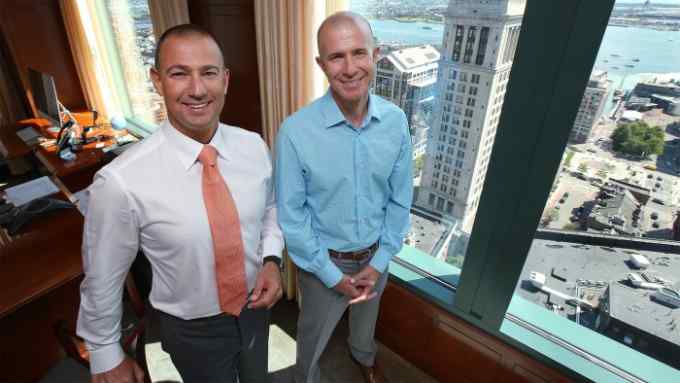Beware bad habits and mad ideas rushed through under pressure


Simply sign up to the Work & Careers myFT Digest -- delivered directly to your inbox.
After decades worrying about being left behind by the accelerating pace of change, business leaders are united in gleeful astonishment at how fast they have been able to move since they first heard of Covid-19.
New laptops for Indian remote-workers? Done, “overnight”, according to Unilever. Company-wide wellbeing software? BP sealed a contract in 10 days that would usually take six weeks. New staff to plug gaps? Serco, the outsourcer, has cut its hiring process from five weeks to less than three.
This cataclysm hit with a velocity for which few companies were prepared. But in the name of ad hoc crisis management, leaders are cutting through red tape, bypassing hidebound hierarchies and redundant rules, speeding up decision-making, radically clarifying priorities, and accelerating long-awaited structural, cultural and technological transformation.
They are also bound to be triggering a rash of mistakes, mis-steps and misjudgments. Many of these blunders will not become obvious until later. Most will be easily corrected or reversed. But some practices and structures will linger and may even become embedded in the way organisations continue to work, turning ad hoc into “bad hoc”.
Those shortcuts round strict compliance, in the interests of “not letting the perfect be an enemy of the good”, are the next mis-selling scandal or fraud in embryo. That waiver on health and safety guidelines “for the duration of the crisis” is an accident waiting to happen. Workplaces are on the brink of some momentous bad hoc decisions on worker privacy, as they gear up for a return from lockdown. US companies are eagerly developing apps and wearables to track and monitor staff, either at home or back in the office, accelerating a potentially sinister trend towards obligatory control of location, productivity and health.
A university head I know, fearing bureaucratic proliferation, used to insist on disbanding any working group once it had served its purpose. Unchecked, that emergency committee, formed by alpha executives who were self-confident or reckless enough to keep coming into the office when everyone else had been told to stay away, could spawn a dangerous new tendency towards groupthink when the immediate crisis subsides.
Safi Bahcall, author of Loonshots, about how to stimulate breakthrough ideas, suggests the ad hoc US system for scientific discovery that developed after the second world war — allowing thousands of independent basic research initiatives to bloom — could even explain the country’s complacency and lack of preparedness for the pandemic. “The current research infrastructure has been terrific for basic science in the US over the past 80 years,” he says, but it is the opposite of the vast engineering project needed to provide high-quality testing, contact tracing, and manufacturing capacity to cope with coronavirus.
Some innovations developed at speed during this crisis will endure and join the catalogue of ideas that vindicate the proverb that necessity is the mother of invention. Under pressure, radical reforms are possible. In 1798, William Pitt the Younger proposed Britain’s first personal income tax to help finance the military campaign against Napoleon and alleviate “the burdens of the country, by a great temporary exertion”. The precedent allowed a later prime minister, Robert Peel, to reintroduce income tax in the mid-19th century. This time, it stuck.
“We ask ourselves, ‘Why can’t we always work like this?’,” Rupert Soames, Serco’s chief executive, told me, reflecting on the pace at which his company has had to adapt in this crisis.
Editor’s note

The Financial Times is making key coronavirus coverage free to read to help everyone stay informed. Find the latest here.
Mr Soames points, though, to the paradox of Chesterton’s Fence. GK Chesterton asked readers to imagine a barrier that modernisers want to remove. Before scrapping the fence, he wrote, they should consider that “some person had some reason for thinking it would be a good thing for somebody. And until we know what the reason was, we really cannot judge whether the reason was reasonable”.
John F Kennedy liked the idea as a brake on rash reform, paraphrasing the passage as “don’t ever take a fence down until you know the reason why it was put up”. It is a principle worth adopting before tearing up good habits, tearing down old structures, or enshrining bad hoc new ones that were first cobbled together in the heat of the crisis. “Is it that these things that used to delay us were unnecessary,” asks Mr Soames, “or is it that in our haste, we’re making mistakes?”
So once they have recovered from their temporary exertions, my advice to leaders is to appoint a small ad hoc working group to decide which clever-sounding crisis initiatives to shore up and which to destroy. The group’s final act, of course, must be to dissolve itself.

Comments